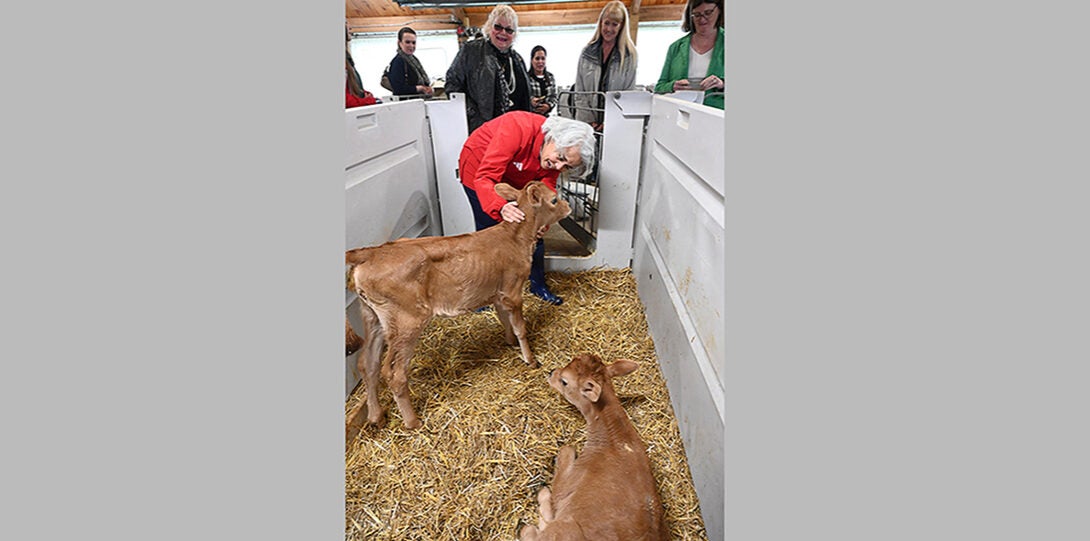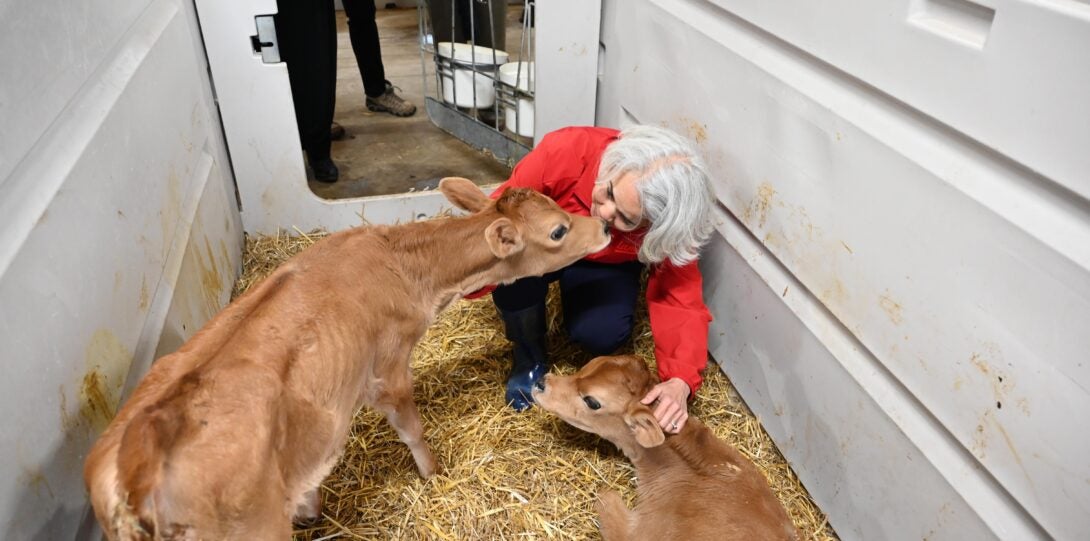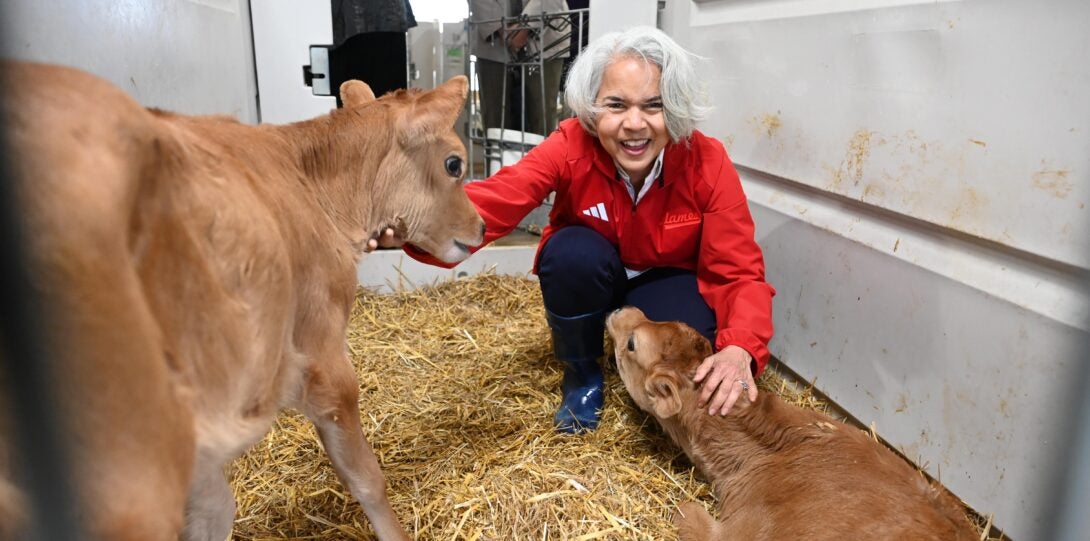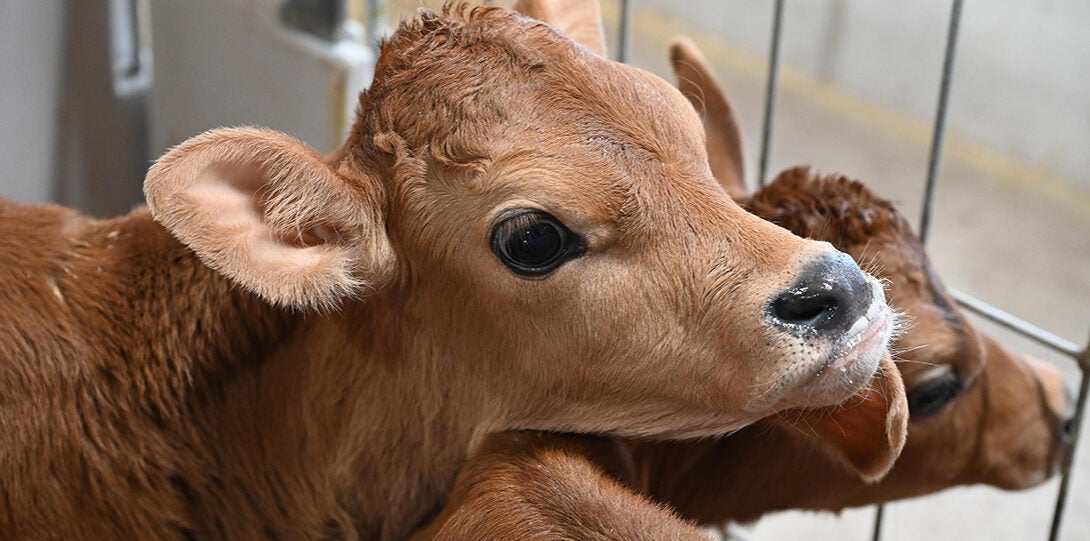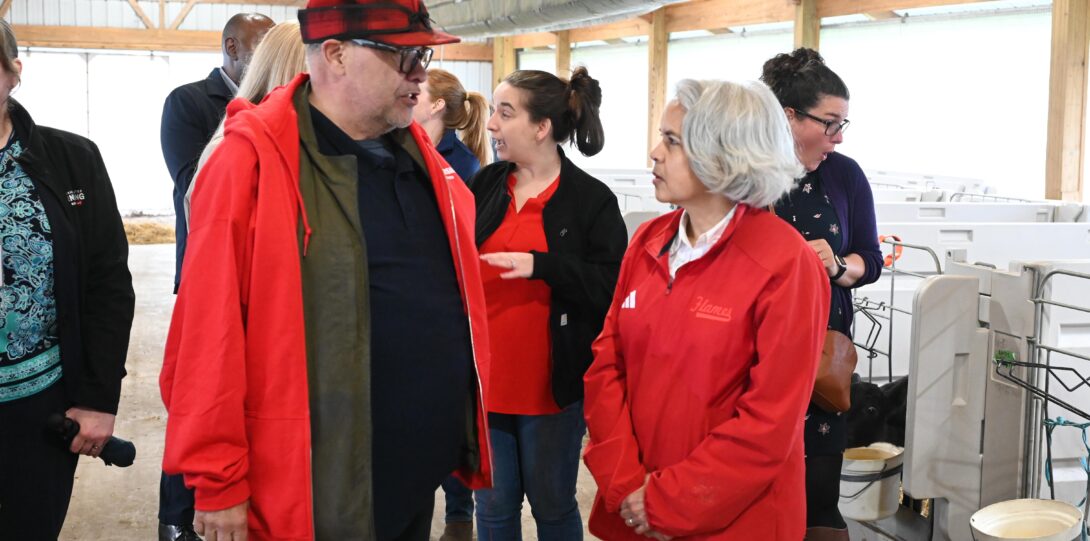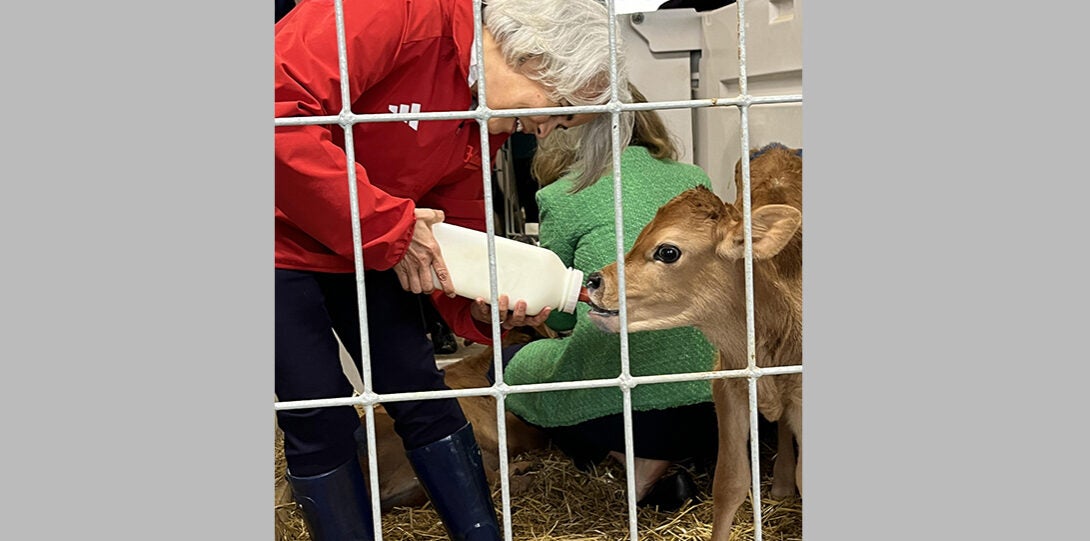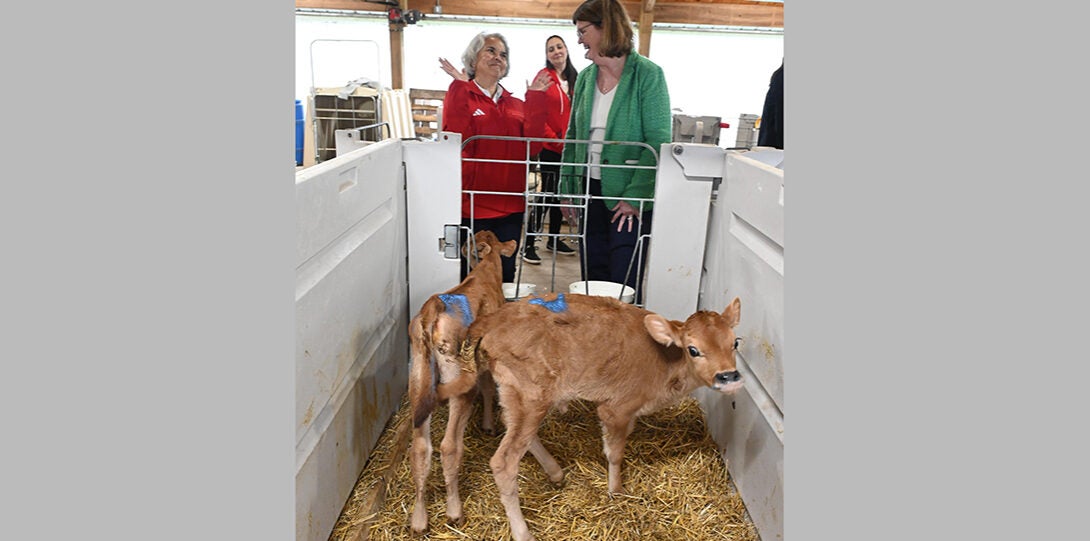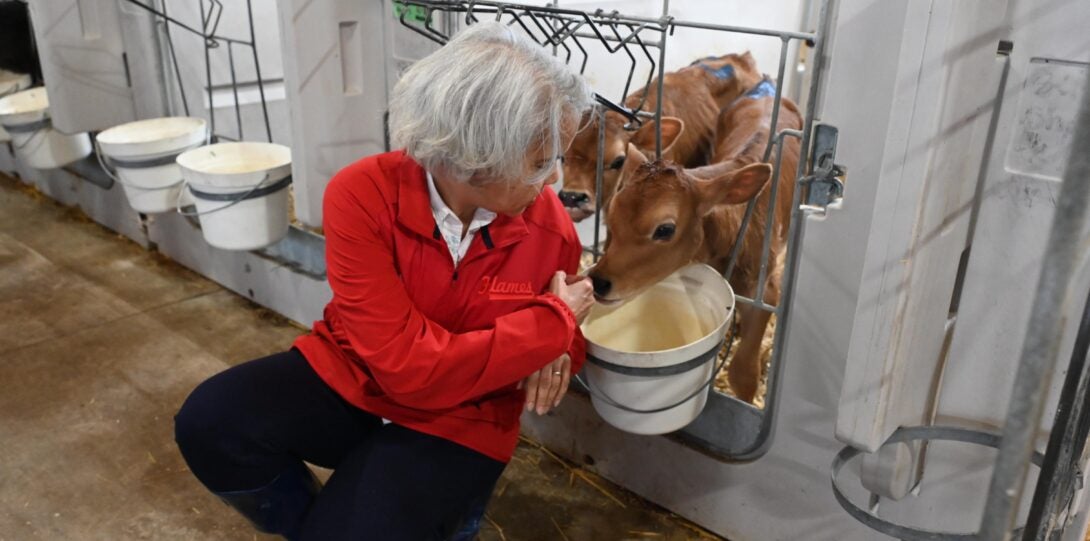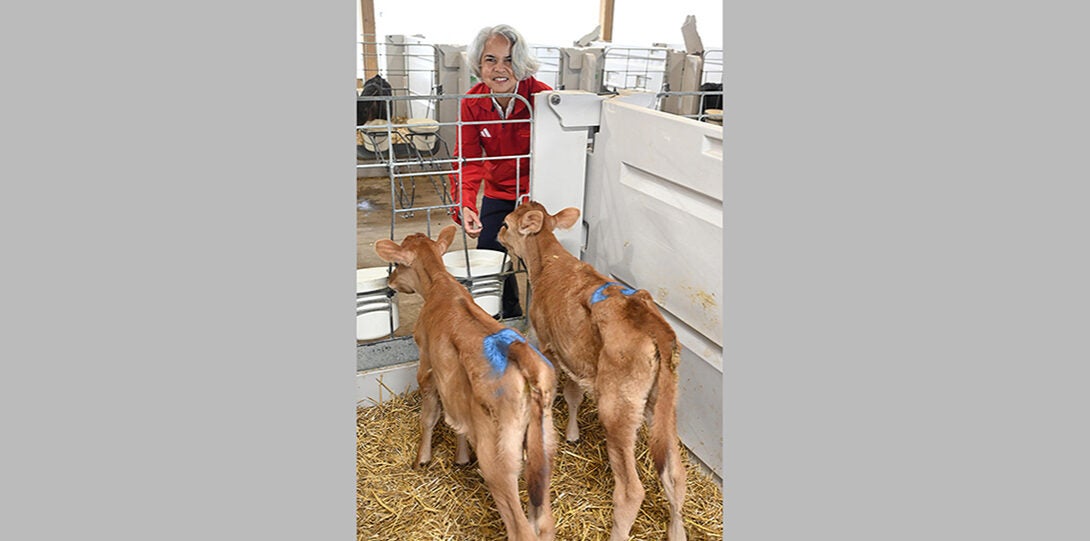Chancellor Miranda meets ‘Chancellor’ and ‘Miranda’
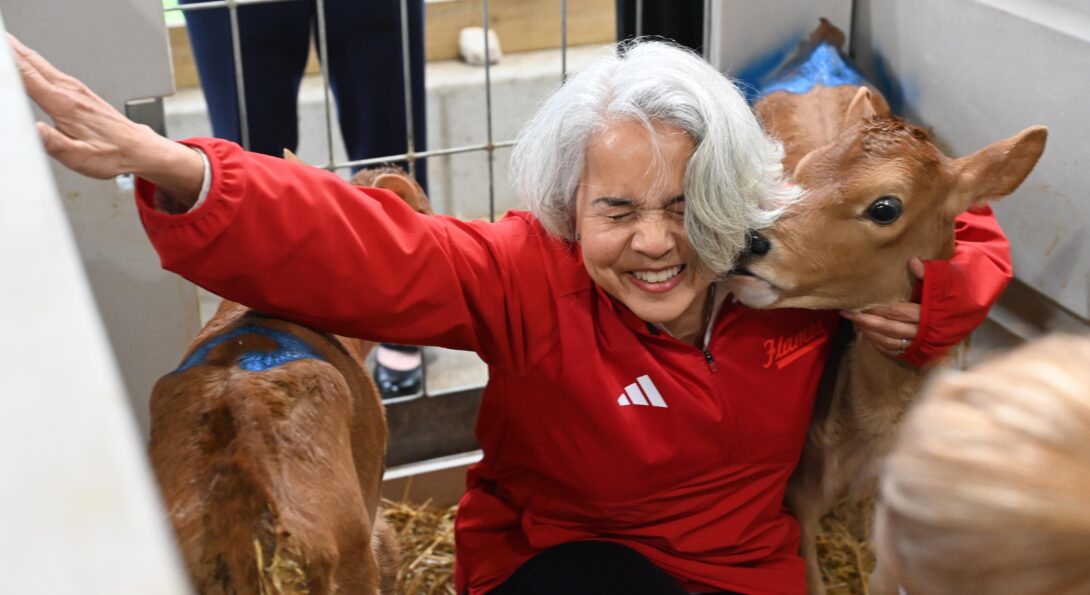
body copy
On a cloudy Thursday afternoon at Twin Brook Dairy Farm in Union, Illinois — about 64 miles northwest of Chicago — UIC Chancellor Marie Lynn Miranda met her namesakes.
“Chancellor” and “Miranda,” identical twin Jersey calves born on April 13, were named in honor of the university’s newly invested chancellor to symbolize and celebrate UIC Nursing’s dedication to rural health.
“It was wonderful to have a personal interaction with the faculty, staff, partners and places that enable our College of Nursing to commit to rural health education and practice,” says Miranda. “And how could I not be honored to have such cute namesakes?”
The McHenry County dairy farm in Union, population 551, is one of several farms that hosts field trips for students in UIC’s rural nursing concentration and certificate program, developed at the college’s Rockford campus. Such visits give students a first-hand appreciation of the unique health and wellness challenges that farming families face every day.
The May 9 visit from Chancellor Miranda and the UIC delegation brought unusual fanfare to calf naming for Twin Brook owners Jim and Jill Sewell, who treated Miranda and other UIC visitors to a full farm tour after introducing the calves.
Among other guests at the farm were UIC Nursing Dean Eileen Collins and Laura Monahan, director of the UIC College of Nursing–Rockford Campus, who spearheaded the naming and the visit.
“We’re not just honoring our esteemed new leader with this gesture; we’re calling attention to the diversity of populations UIC Nursing both educates and serves,” says Monahan. “It’s a visible, symbolic moment to celebrate UIC’s impact in Illinois beyond the city where it’s based.”
Approximately 1.5 million people live in rural counties across Illinois, where they face longer wait times or must travel farther to see health care providers. In Illinois, rural counties face a shortage of mental health providers and there are half the number of physicians per 100,000 residents compared to urban counties — a two-pronged crisis for which nurse practitioners can provide relief. In addition, it is estimated that Illinois will have a shortage of 15,000 registered nurses by 2025.
